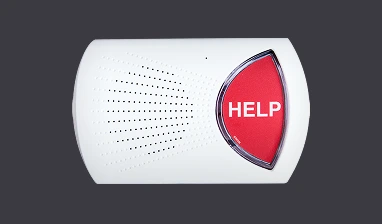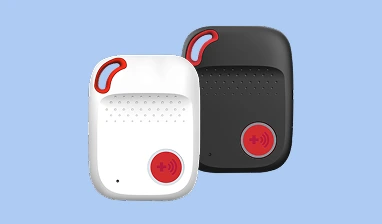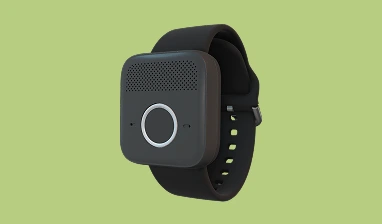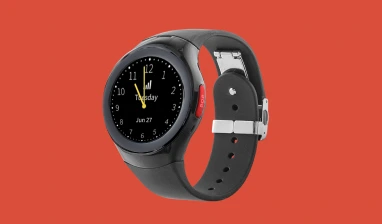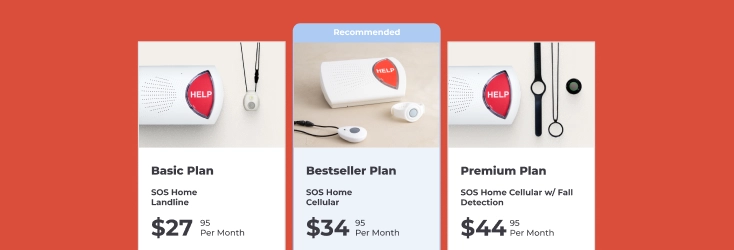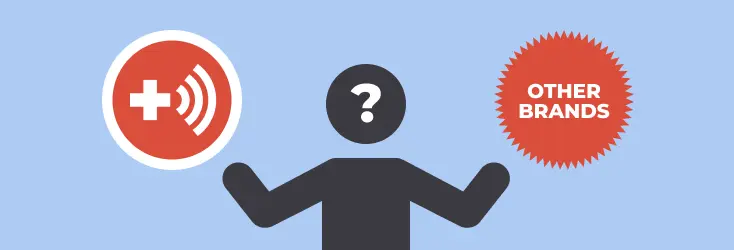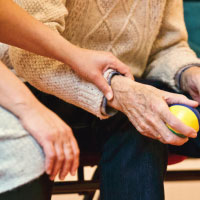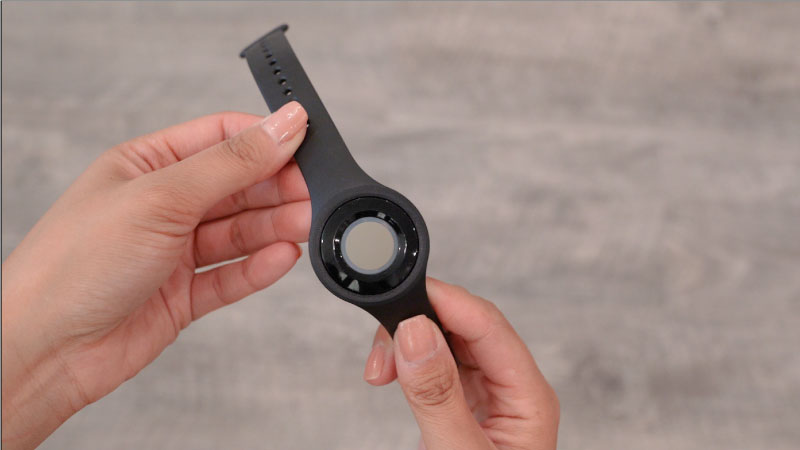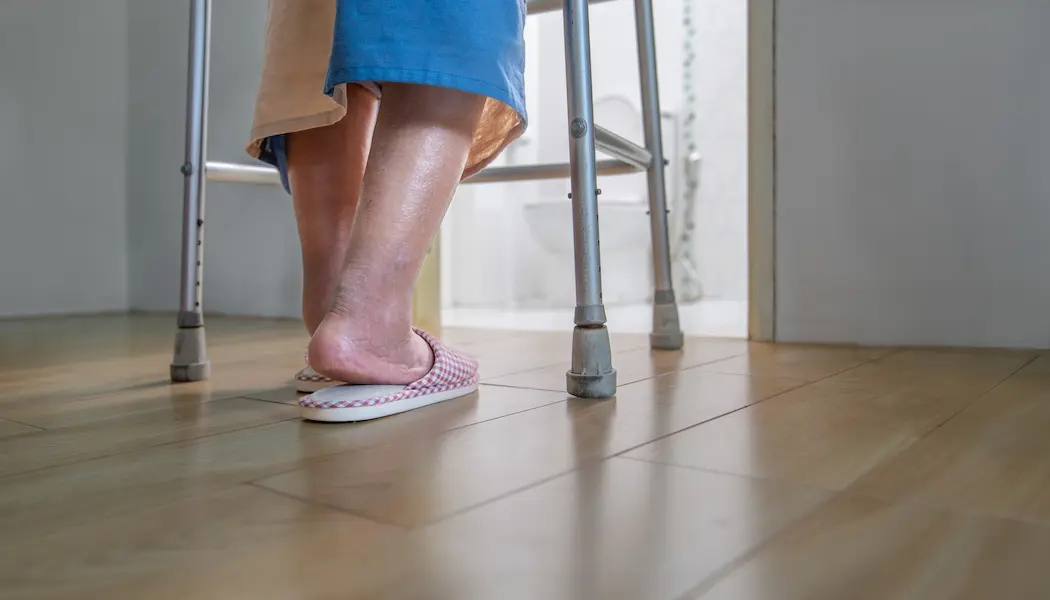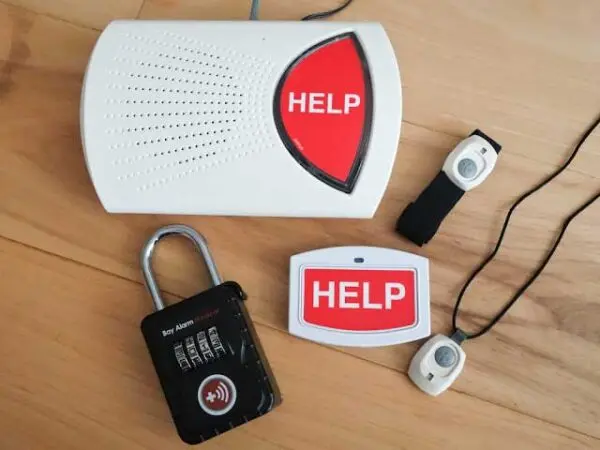
Falling – it’s the fear of every adult with elderly parents. The Center for Disease Control (CDC) says that three million older people are treated in hospital emergency rooms for injuries sustained during a fall each year. These falls are the most common cause of traumatic brain injuries and 95% result in hip fractures.
While falling is a common possibility as a person ages, the American Association of Retired Persons (AARP) suggests that the severity of the injuries that result from falling could be lessened with one simple tool – a medical life alert device.
This article will help you understand how to approach the topic of medical alert systems with your parents and provide you with actionable tips on how to talk about the systems.
Are Falls Really That Common in the Elderly Population?
The CDC reports that more than one in four older Americans fall down each year. In addition to the injury from the fall, the elderly person could lie there undetected, suffering complications that can range from dehydration to hypothermia.
If you are the son or daughter of an elderly parent, here’s a terrifying statistic to consider: The rates of death due to falling increased by 30% between 2007 to 2016 in our country’s elderly population. The CDC says if these rates continue to increase, by 2030, there will be seven deaths caused by falling every hour in this country.
For people aged 65 and older, the potential for falling grows higher, along with the risk of serious and sometimes fatal injury. That’s when a personal medical alert device, a simple, wearable device that, at the push of a button, can alert a trained team of responders, can save lives. But how can you know when it’s time to have a discussion with your parents about this kind of device?
How to Tell If Your Parents Need Medical Alert Devices
Before discussing how to talk to elderly parents about medical alert devices, it’s important to determine whether there is an immediate need. Some of the signs to watch for include:
- Changes in physical health, such as having trouble getting around the home.
- A recent fall that signals your parent may need more help than they admit.
- Weight loss and frailty, leading to decreased mobility.
- Problems with balance and walking.
- Increasing forgetfulness or confusion.
- Problems with vision.
- A drop in mental acuity and alertness.
- Home hazards such as broken steps or excessive clutter that pose a tripping hazard.
Falls are often caused by a combination of these issues. If you’re seeing these signs, here is how to broach the topic with even the most stubborn loved one.
Talking to Your Parents About Medical Alert Systems
No one wants to face the realities of aging. As parents age, there is a role reversal in which the child is providing advice and support to their original caregiver. These issues can make for an uncomfortable initial discussion about medical alert systems.
Even if your parent is initially reluctant, the truth is that medical alert devices can keep the aging adult independent and in their home for a longer period of time.
When broaching the subject of senior alert systems, make sure to:
- Focus on how these devices keep them independent. This is the most important point that should be addressed early in the initial conversation. Try framing the entire conversation on how medical alert devices are designed to let people stay home longer without constant supervision in a care facility. The device wearer still maintains control over when the button is pushed and whether 9-1-1 or a family member should be called. If the goal is to keep the person safer while preventing an incident that could lead to a nursing home, why not consider it?
- Explain that you’re worried about their health and have found a way to keep them safer while living at home. Try to frame the argument that “it’s for me not for you.” In other words, that an alert system will make you feel more at ease. That said, while the parent will likely say, “I’m fine,” the truth is that they may also be a little worried about their ability to continue to function effectively at home. Senior alert systems are designed not only to lessen the worry of their children and loved ones but also to address some of the challenges your parent may feel as they get older.
- Emphasize that a mobile phone is not enough. It’s an understandable argument – why get an alert system when you already have a mobile phone that can be used to call for help? In fact, it’s entirely possible that your elderly loved one has a mobile phone specifically for emergencies. According to Pew, 67% of the Baby Boomer generation (ages 54 to 72) and 30% of the Silent Generation (ages 73 to 90) has a mobile phone, and that adoption rate is increasing.
The problem is that smartphones can’t always be counted on. Cell service may not always be available, or the batteries may not always be charged. It is entirely possible that they may not have a mobile phone on them when they fall or be too injured to use a phone.On top of that, many seniors struggle to operate smartphones under ideal conditions. If they are faced with an emergency, they may be unable to operate their phone, even to dial three numbers – 9-1-1. A medical alert system is always present and easy to use. Also, unlike cell phones, some alert systems work automatically, so even if they fall and are rendered unconscious or unable to move, the system will still call for help. - Partner with an expert. Having these conversations with a doctor or other 3rd party authority figure present can help make your case. Preparing for the discussion is important, but if you attend a medical appointment with your parent, that may be a good time to start the conversation.
- Walk them through how the system will work. Take the time to walk your parent through how the system will work. Be transparent about what it will involve so that they fully grasp what is involved. These devices are simple to install; plug and play is a standard feature that allows most people to do-it-yourself.But it’s important that your parent understand how the device works and that trained caregivers are standing by to help them 24/7/365. No one should ever feel uncomfortable using the service – that’s exactly why it is there. If they’re worried that they may push the alert button by mistake, explain that all they need to do is tell the operator they’re fine and it was a simple mistake; no harm was done!
- Never patronize your parent(s) or talk down to them. Approach the topic of senior alert systems from a position of respect and concern. Try asking your parent if they ever worry about not being able to get around their home or complete their daily chores. Are they worried about what will happen to them as they get older? As you begin the discussion, imagine what you would feel if it were your child talking to you about needing help one day. It’s important never to get angry or let your frustration show, share that you’re worried and you have something that you think will help them stay independent for as long as possible.
- Discuss the cost. It is entirely possible that your parent will object based on the added expense when they “don’t think it’s necessary.” However, should they be injured and unable to get immediate medical attention, the potential hospital expenses will be significantly higher than the low monthly subscription service. It is certainly less expensive than assisted living. How much is their safety (and your peace of mind) really worth? With plans often costing less than $20 per month, medical alert systems can also be thought of as a type of inexpensive insurance.
- Address the fact that the device may not be fashionable, but it is necessary, and no one will think less of them for wearing it. Some people worry that the device will make them look silly, feeble, or dumb. In fact, it signifies that someone cares enough about them to provide them with the device.
- Be clear that falling and other medical emergencies are a real threat. Make sure to provide a number of facts from sources that elderly people would consider credible, like AARP. For example, according to AARP, the “death rate from falls [among elderly individuals] increased 31 percent from 2007 to 2016.
Having an earnest and heartfelt discussion about the safety of someone you love is hard. But medical alert devices were designed to improve the lives of older people so they can continue to live their lives to the fullest.
Have the Discussion – Get Peace of Mind
As your parent’s age, there are a number of discussions that should occur that may make you and your loved one uncomfortable. Bringing up the issue of senior alert systems may well be one of these conversations.
But the statistics clearly show the need for these devices; the CDC says that more than 800,000 older Americans are hospitalized every year for a fall injury. Medical alert devices allow a parent to remain at home knowing that help is just a push button away.
Interestingly, medical alert devices are in use by younger people as well; people with disabilities for example, who cannot reach the phone easily can benefit from the service. But medical alert devices are worn most frequently by people in their 70s, 80s, and 90s. These devices allow them to continue to live in the comfort of their own home into these later years.
Bay Alarm Medical is devoted to providing your loved ones with affordable and reliable protection for their health and independence with our #1 rated medical alert systems. To learn more about medical alert technology and services, please visit our How It Works page
We thought you might also like:
5 Signs It’s Time For A Medical Alert System
